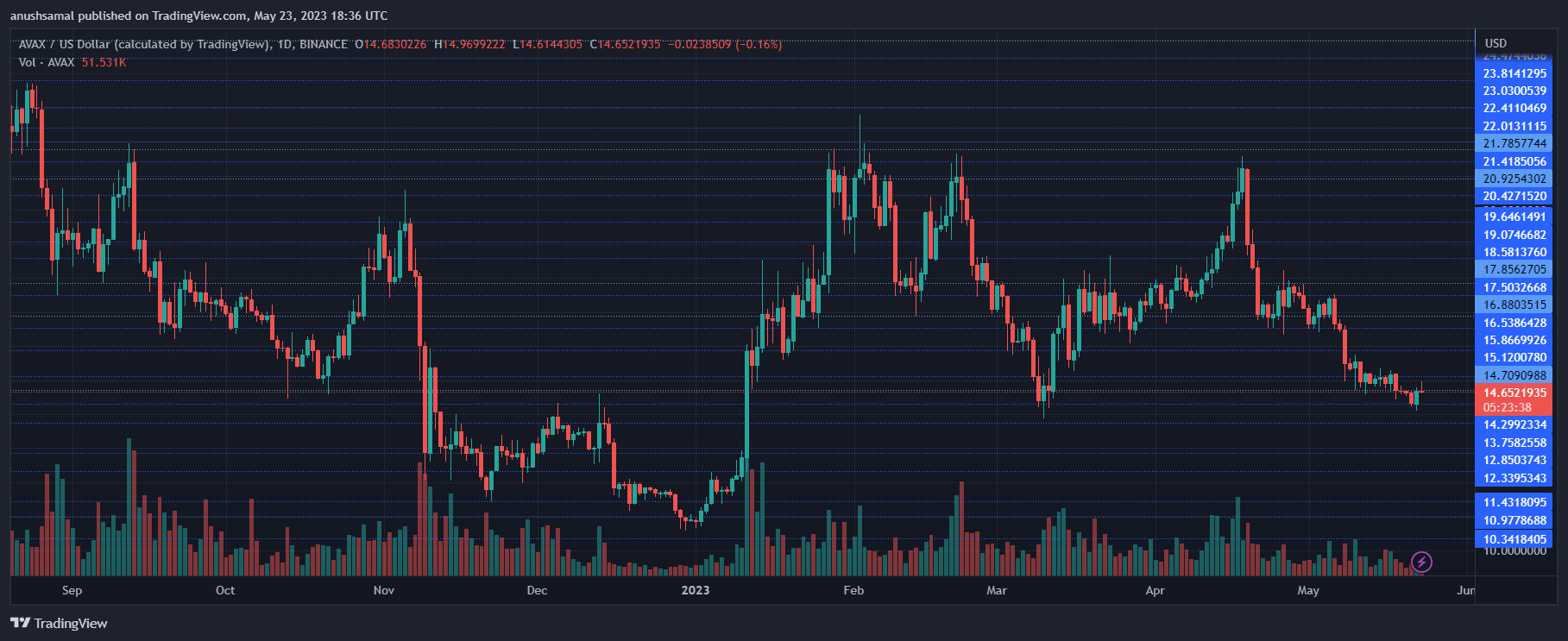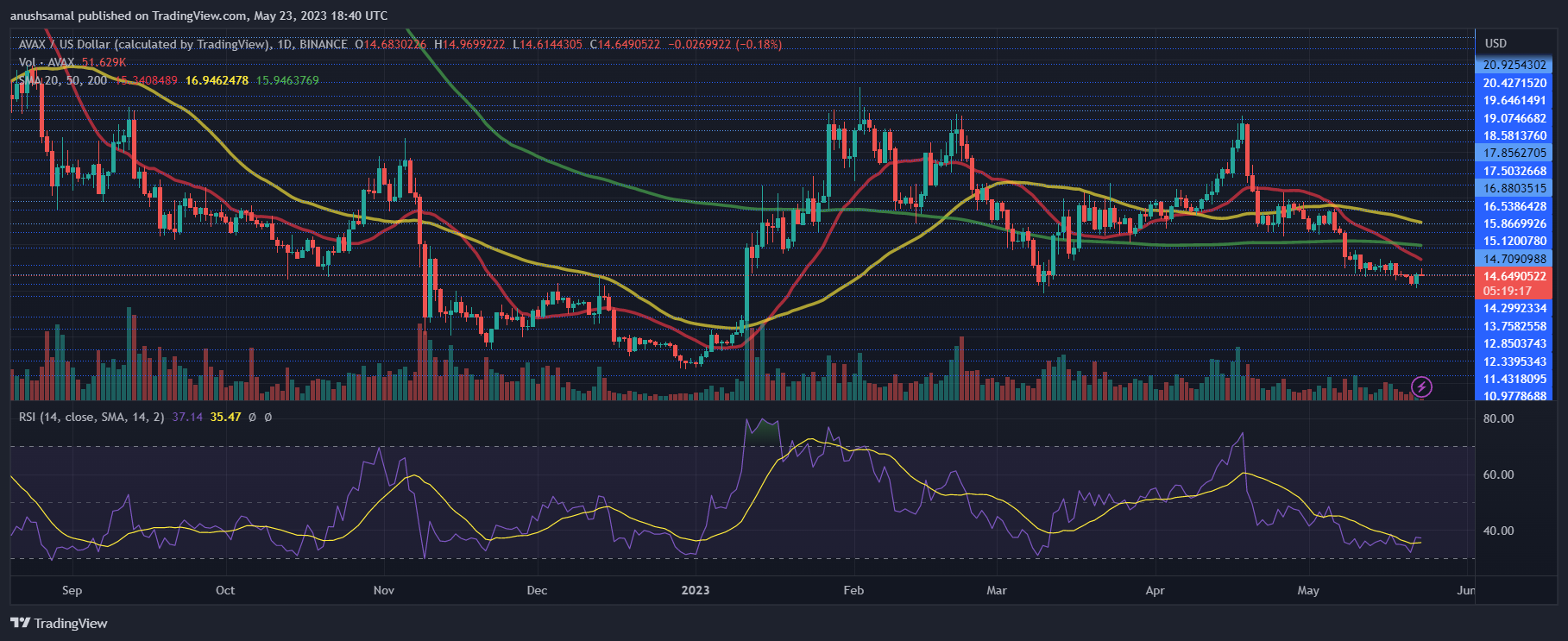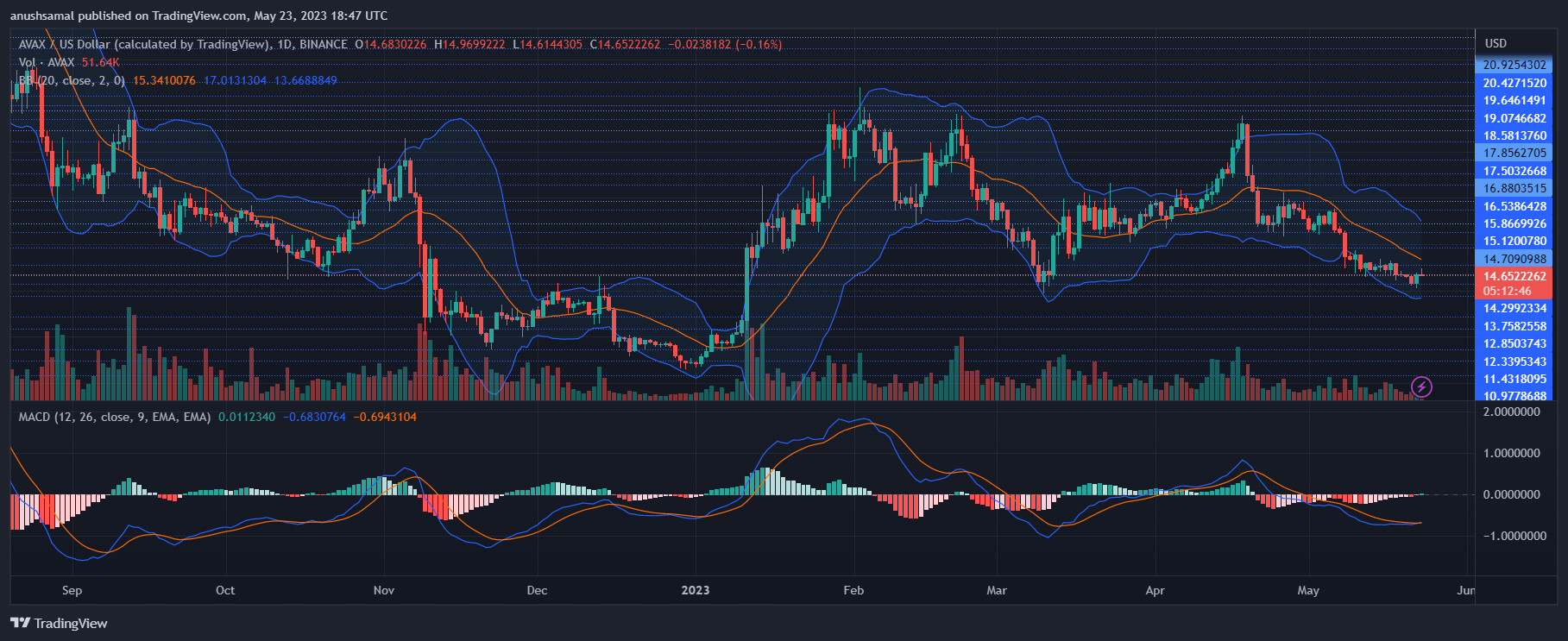During the recent weekend, Avalanche (AVAX) witnessed a significant surge in selling pressure, resulting in a bearish breakout. As a consequence, the price of AVAX dipped close to a multi-month low of $13.8.
However, on the 24-hour chart, the altcoin displayed a slight upward movement, showing some appreciation. On the other hand, the weekly chart depicted lacklustre performance for AVAX.
The technical outlook for Avalanche remains bearish, as both demand and accumulation levels have remained low. The price action of AVAX has been influenced by the undecided nature of Bitcoin (BTC), which recently re-entered the $27,000 range.
This has caused other altcoins, including AVAX, to exhibit uncertainty on their respective charts. The overhead resistance level for AVAX holds significant importance, as surpassing this level could trigger a rally for the altcoin.
Conversely, if sellers exert further pressure, AVAX may break its consolidation and fall below its immediate support level, thereby strengthening the bearish sentiment.
Broader market strength is necessary for AVAX to reclaim its overhead ceiling. The decline in the market capitalization of AVAX indicates a decrease in buying strength at the current time.
Avalanche Price Analysis: One-Day Chart

At the time of writing, AVAX was priced at $14.70. It is currently trading in close proximity to its immediate resistance level of $15. A breakthrough above $15 has the potential to propel the altcoin towards $15.80 and ultimately $16.
The involvement of buyers in the market is crucial to generate demand and facilitate AVAX’s upward price movement. On the downside, if AVAX fails to sustain its current price level, it may find support at $14 before potentially trading below that level. The recent trading session showed a decline in the amount of AVAX traded, indicating the dominance of sellers in the market.
Technical Analysis

Throughout May and part of April, AVAX experienced consistently low buying pressure, reflecting a limited demand for the altcoin. The Relative Strength Index (RSI) was below the 40-mark, indicating that sellers had a greater presence than buyers at the time of writing.
Furthermore, the AVAX price fell below the 20-Simple Moving Average (20-SMA) line, demonstrating that sellers were the driving force behind the price momentum in the market.
A significant move above the $15 price level would help AVAX surpass the 20-SMA line, suggesting a potential shift in momentum and possibly attracting more buying interest.

Although AVAX recently returned to the $14 price zone, there are no clear indications of buying strength according to technical indicators.
The Moving Average Convergence Divergence (MACD), provides insights into price momentum. It formed only one green histogram, which does not necessarily signify buy signals at this point.
The Bollinger Bands, which reflect price volatility and fluctuations, have remained wide, indicating that the possibility of price fluctuations cannot be ruled out in the upcoming trading sessions.








